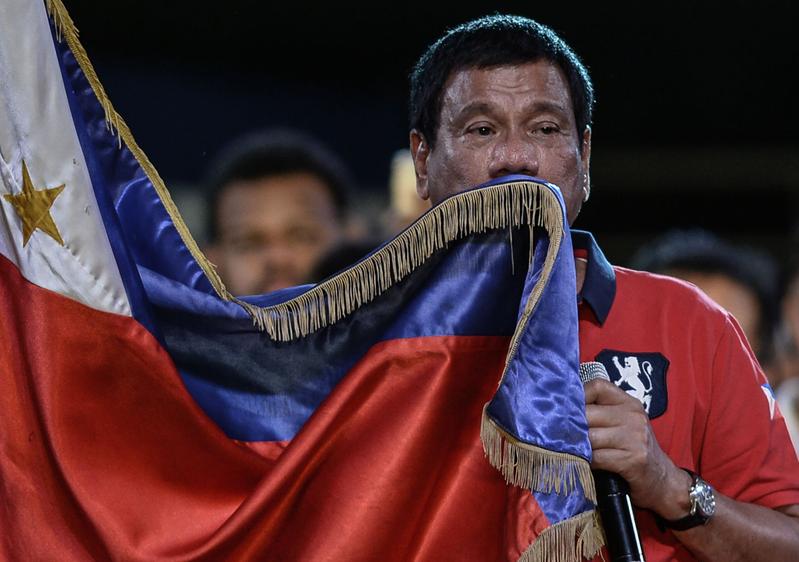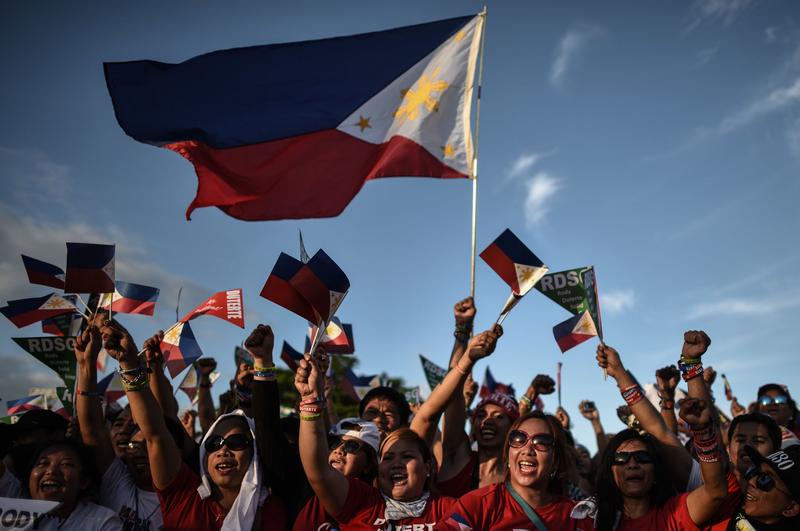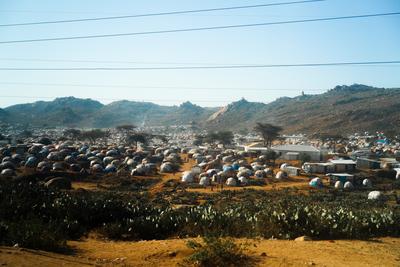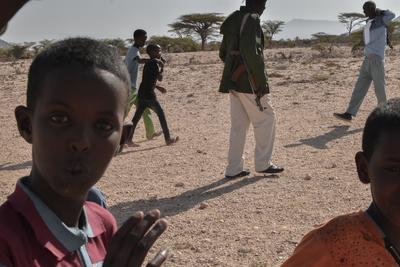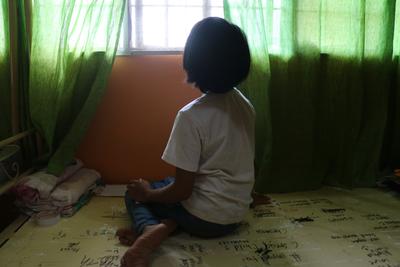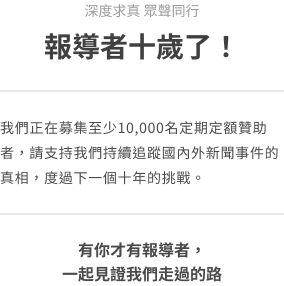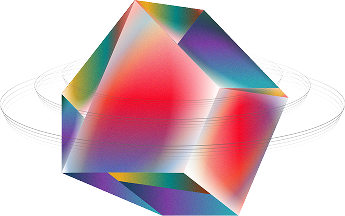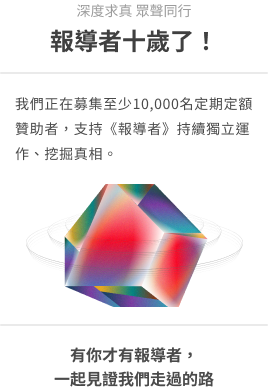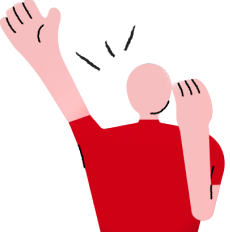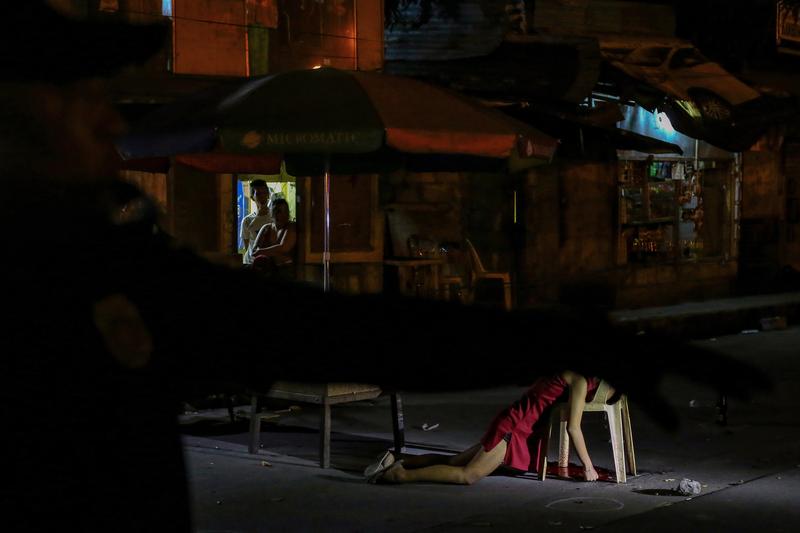
(內有血腥畫面,請斟酌閱讀。)
2016年,菲律賓總統杜特蒂(Rodrigo Duterte) 上任後發動掃毒戰(Drug War),允許警方根據「觀察清單」辨認毒販、吸毒者,並在沒有審判的狀況下直接槍殺,甚至有3歲女童也遭牽連死亡。
掃毒戰的行動隱密,使得調查死亡人數極為困難,但根據菲律賓獨立政府機構「人權委員會」(Commission on Human Rights)的調查,至今已有27,000人死於掃毒戰。掃毒戰是「緝毒」還是「屠殺」?如今,一群獨立撰稿人與攝影記者站出來,以照片和證據於向國際揭發菲律賓政府的可恥行徑。
While the war on drugs has left tens of thousands dead on the Philippines, a group of freelancing journalists and photographers has brought international attention to the government's shameful conduct.
Ezra Acayan and Kimberly de la Cruz have been working as news photographers for years, but only after a new government, with its charismatic President Rodrigo Duterte has declared a War on Drugs in 2016, their work has contributed to putting extrajudicial killings of alleged drug pushers on the radar of international human rights watchdogs. After 20,000 to 27,000 people have been killed and the public opinion is slowly shifting as well.
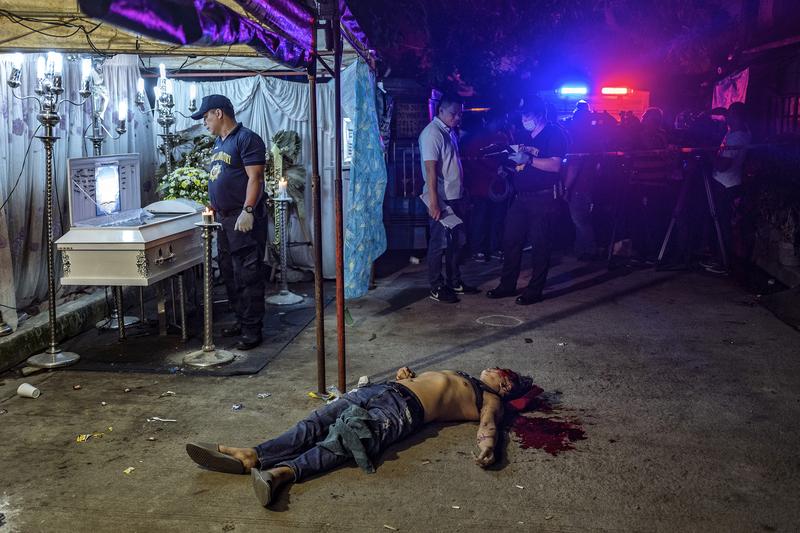
問:請問菲律賓真的有毒品問題嗎?
庫茲(以下簡稱庫):我們一直以來都有毒品問題,但沒有現在這麼嚴重。事實上,大部分的毒品來自海外,是海關和警察的貪腐助長了這個問題。我們的總統(杜特蒂)聲稱現在有300到400萬的用藥者,但這個數據備受爭議,甚至連菲律賓政府的危險藥物委員會自己都承認「太高了」。杜特蒂不斷強調用藥者製造了可怕的犯罪問題,但這根本就是無視貪腐、把所有事情都怪在毒品身上的說法。
Q: Do the Philippines have a drug problem?
Kimberly de la Cruz: We have always had a drug problem, but it hasn't been as big as it is today. Most drugs are coming in from overseas and corruption in customs and the police foster the problem. Our president on the other hand speaks of 3 to 4 million drug users, a number which is disputed as too high even by the “Philippines Dangerous Drug Board”. Duterte speaks of hideous crimes committed by drug users, but this is blown way out proportion to blame everything on drugs.
Ezra Acayan: Drugs are a poverty related issue on the Philippines. The most popular drug is Shabu, Methamphetamin, and people take it because it gives them energy to work for long hours, maybe even for days straight. It is very cheap, and some people who use it also sell it. The policy of our Government is to kill those people, but they don't do anything against the ones who supply on larger scale, the ones who import the drugs, mostly from China.
問:掃毒戰是怎麼開始的?
庫:早在1999年左右,菲律賓就有針對毒品的政策,但當初的概念是「抓毒販、幫用藥者」,這個政策顯然不是非常有效,杜特蒂2016年上台後做了大幅改動。
阿:「屠殺式」的政策在選舉後就立刻開始了,我開始報導是在杜特蒂上台後2週。有時候,光是馬尼拉一晚就有20人被殺。杜特蒂是因為主打「掃毒」和「打擊犯罪」當選的,以前他在達沃(位於菲律賓南部的城市)當市長時,就已經開始實行類似政策,在沒有正當程序下殺了很多輕罪罪犯,他後來更宣示要把這種執政風格帶到全國。
Q: How did the drug war start?
KdlC: There is a history of campaigns against drug use since around 1999. But the original concept was "Jail the pusher – help the user". That was apparently not effective and changed a lot with Rodrigo Duterte becoming President in 2016.
EA: The campaign of killings started right after the election, and I started covering them 2 weeks into his presidency. At the that time, in some nights 20 people were killed in Manilla alone. Duterte was elected promising to get rid of drugs and crime, as he had been doing it in Davao, in the south of the Philippines, where he had been city mayor. There he had implemented the policy of having petty criminals killed without due process and he promised to do it this style nationwide.
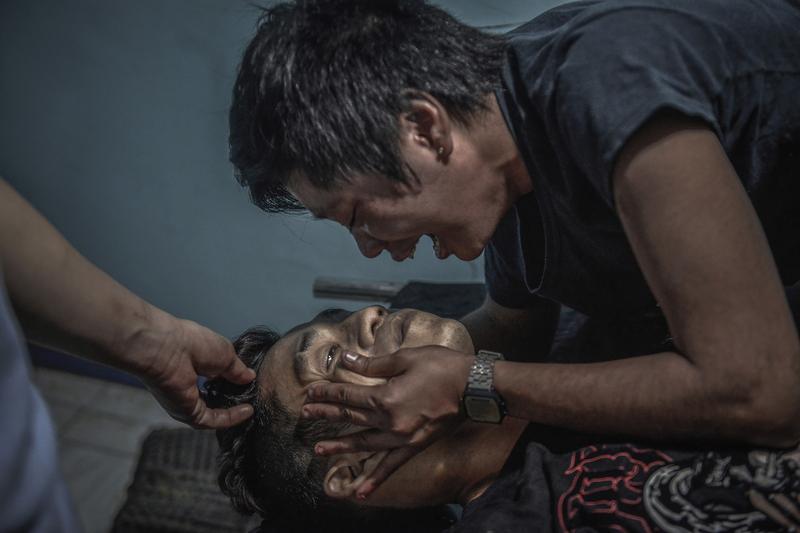
問:為什麼這些輕罪罪犯、窮人、或未受教育民眾,會成為掃毒戰的目標?
阿:這些輕罪罪犯多半來自貧困社區,基本上杜特蒂把他們「去人性化」了,所以中產階級就覺得可以接受。另外一部分則是媒體的錯,在杜特蒂當選之前,媒體以聳動手法報導輕微犯罪新聞,讓許多人開始把這些窮人視為「應該被殺掉」的怪物。
庫:許多人會正當化掃毒戰,認為這樣一來街上就更安全了。的確,在2016、2017年之後,輕罪的犯罪率下降了,但是這只是因為人們擔心會被警察槍擊,所以不敢上街而已。政府也沒有意識到用藥的種類、原因都是很多元的,一些用藥的窮人常常根本沒有參與其他犯罪活動。但現在所有曾經用藥紀錄的人──就算那已經是10年前的紀錄──都跑去警局自首,因為他們擔心會被當街槍殺。很不幸地,菲律賓一直都有這種「警方殺人也不必受罰」的文化。此外,我相當驚訝杜特蒂和他的掃毒政策都仍然保有相當高的支持度,甚至連在窮人社群內的支持度都很高。根據獨立媒體,比如說Rappler的統計,他仍然保有高達85%的支持度。
阿:總地來說,輿論的轉向速度還是非常慢。我曾經和一些被害者的家屬們談過,他們一直到有家人被殺害前,都是支持杜特蒂的。
庫:我也正在嘗試了解為什麼會這樣。舉例來說,大部分我接觸的計程車司機都頗能接受現狀。當我和他們談這個議題時,我會強調現在每天都有人在街上死去,而他們就可能是下一個;我也會和他們提到海關查獲價值數十億比索的甲基安非他命,卻沒有任何人被起訴。我想這裡的問題是,人們再也不相信媒體了,他們寧可相信那些不斷重複「他們已經相信的事」的消息來源。
Q: Why are those petty criminals, or the poor and uneducated in general, the target of the drug war?
EA: Duterte has basically dehumanized petty criminals, which are mostly from poor communities. This made things acceptable to the middle class. In part it is also the media's fault. Before Duterte was elected, the media sensationalized crime, and people saw reports about petty crime all day. Many people started seeing those poor people as monsters that must be killed.
KdlC: Many people justify the Drug War, because now it is supposed to be safer on the streets, and indeed since 2016/17, the rates of petty crimes have dropped. But that's just the case because people are afraid to be out on the streets because they might get shot. The government has also failed to acknowledge that there are different kinds of drug use, different reasons for people to use drugs. Poor people who use drugs, are often not involved in any other crime. But now everybody who has a history of drug use, even if it was ten years ago, they surrendered themselves to the police because they are afraid of getting shot. Unfortunately there has always been a culture of impunity in the Philippines. Still, I am surprised by the high approval ratings of Duterte and approval ratings of his drug policies, also among the poor. According to independent media, like for example Rappler, he still has approval ratings of up to 85%.
EA: The public opinion is shifting very slowly, if at all. I talked to many families of people who got killed, and until they lost a loved one, they supported Duterte.
KdlC: I'm also trying to understand that. For example, most taxi drivers I rode with are ok with the situation. When talking to them about this I highlight that people are dying on the street every day and that they themselves could be next. And I tell them about reports that Methamphetamines worth billions of PHP have been found in our customs while no one gets prosecuted. I think a problem here is that people don't trust the media anymore, or rather trust the sources that repeats what they already believe.
庫:一開始我也相當樂觀,認為我們的報導絕對能獲得大眾關注。許多報導掃毒戰的記者剛開始時,都相信我們的社會只是「睡著了」,但是我們後來發現其實人們根本永遠不會醒來。我們的文化是非常個人主義、對周遭漠不關心的,許多人根本不在乎我們的社會崩壞了。菲律賓人因為文化和地理因素分裂,社會不平等的狀況也很嚴重。此外,還有語言上的隔閡,大部分有一定品質的媒體撰寫、播報新聞時都是使用英文,但很多人不懂英文。我個人認為,我們需要使用不同語言、讓更多人能接觸報導,但如此一來,在社群網站演算法下我們就會處於劣勢了。
阿:我們已經蒐集掃毒戰的證據長達3年了,在菲律賓,沒有任何人可以找藉口說他不知道發生了什麼事。另一方面來說,人們已經麻木了,窮人社群的人已經接受這種生活,可能每天晚上會有一兩個人被殺,然後隔天人們就會開玩笑來應付這件事。
問:誰在晚上殺了這些人?
阿:是警方,有時候是在穿制服的狀況下,有時則是偷偷地殺。但我們永遠可以找到證據回溯到警方。
KdlC: At first I was optimistic that our reporting could reach the people. Many journalists documenting the Drug War started their work believing that our society is just sleeping, but then we collectively just never woke up. Our culture is very individualistic and there is a lot of apathy. Many people just don't care that our society is broken. The Philippines are divided in terms of culture and geography, the level of inequality is high as well. There is also a barrier of language. While most quality media writes and speaks in English, many people cannot relate to that. I personally think we need to disseminate our news more and in different languages. But then, in social media we are all lost in algorithms.
EA: We've been gathering evidence of the Drug war nonstop for 3 years now. Nobody in the Philippines has an excuse for not knowing what's happening. On the other hand people have become numb and in the poor communities people have accepted it as a way of life. At night maybe one or two people are killed in a neighborhood and on the next day people cope with it by joking about it.
Q: Who kills these people at night?
EA: It's the police. Sometimes in uniforms, sometimes secretly, but it can always be traced back to the police.
問:你如何報導這些殺戮事件?
阿:一開始是警方邀請我們的,他們相當以這些「執法行為」為傲。後來國際上開始有些負面反應出來,他們就變得比較低調了。所以現在我們多半依賴市民、社群網站──特別是喪禮業者──提供消息來源,通常有犯罪現場的話他們會第一個被通知。
庫:我們從2016年秋天起參與被害者的追思會,我們想知道是誰在哀悼、埋葬他們,誰會負責養育那些失去父母的孩子。之後我把重心轉移到關注司法系統,並報導那些控訴家人遭到殺害的人。在大部分的案例中,都極少有東西可以報導,因為整個司法體系並沒有在進步。
Q: How do you cover the killings?
EA: Especially at the beginning it was the police that invited us in, being pretty proud of what they did. After there was negative reaction from the international community, things were kept more secret. So nowadays we rely on citizens, social media and especially funeral parlors, that get informed first if there is a crime scene.
KdlC: In fall 2016 we also started going to the wakes of people who had been killed. We wondered who is there to mourn and bury the body, who will feed the kids who have lost a parent. Later I shifted my focus on the justice system and cover hearings of people who complained that family members have been killed. In many cases there is frustratingly little to report because the justice system is not moving forward.
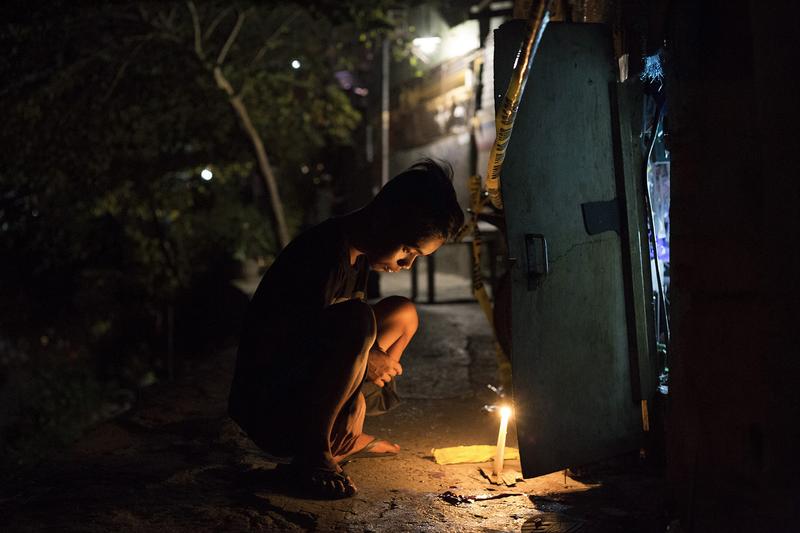
問:身處在政府意圖扭曲新聞報導的工作環境中,記者們的處境還好嗎?
阿:在首都馬尼拉還算安全,但一旦離開首都,記者的處境就非常危險了。我有很多同事想要報導其他省分、或是他們家鄉的殺戮案件,但這幾乎是不可能的。在小鎮裡,大家都彼此認識,如果有人「太聰明了」,某些人就會來處理他。少數做了報導的記者,已經慘遭殺害;你也可以發現那些持續報導、批判的媒體被如何對待:比如持續批判政府的媒體Rappler,總監瑪麗亞.瑞莎(Maria Ressa)就被一次又一次的逮捕,還需要應付大至逃稅小至誹謗等各種(偽造的)逮捕令。
庫:過去,我也曾經向警方調閱相關資料,但幾乎沒成功。某一次警察局長還指控我的報導「危害國家」。在杜特蒂上任後,參議院、或是國會中都鮮少有反對派的身影,這是很嚴重的問題。我從來沒想過有一天我會看到致力於對抗掃毒戰的參議員、同時也是人權委員會和司法部部長的蕾拉.德.利馬(Leila de Lima)入獄,她已經在獄中兩年了,被指控的罪名是「收取毒梟賄賂」。這真的瘋了。
Q: How is the situation for journalists, working in an environment with a government that wants to spin stories in their favor?
EA: In the capital, in Manilla, it is still relatively safe. As soon as you leave the capital, it gets very dangerous for journalists. I have many colleagues, who would like to work on the killings in the provinces, in their hometowns, but that is nearly impossible. In smaller towns everyone knows each other and if somebody is getting too smart, somebody will do something against it. The few journalists who have done this kind of reporting anyway, got killed. And on the larger level you can see what happens to the media that keeps on reporting critically. Maria Ressa, director of Rappler, one of the few critical media outlets, gets arrested again and again and has to respond to all kind of (fabricated) warrants, concerning everything, from accusations of tax evasion to libel.
KdlC: In the past, I had asked for data on the killings from the police with little success. Once I was told by a general that my reporting is “detrimental to the country”. A big problem is that there is very little opposition within government institutions such as the Senate or the Congress. This is how it has become after Duterte became president. I would never have thought that I will see the day that senator Leila de Lima, former head of the Comission on Human Rights and Department of Justice who fought against the drug war, will find herself in jail. And now she has been there for two years, allegedly having taken money from drug lords. That is crazy.
問:兩位的報導都獲得了很多國際關注,庫茲的照片獲得國際知名出版商們刊登,阿卡葉最近也獲得了世界新聞攝影獎,你們覺得國際上的關注有連帶影響到你們的國家,甚至可能帶來重大改變嗎?
阿:今年7月聯合國已經開始調查掃毒戰,還有兇手們沒被起訴的狀況,至少有在前進了。這也要感謝所有把故事帶出來、讓世界看到菲律賓現狀的人們。
庫:目前對於受害者家屬的援助仍然很少,而且殺戮也還在繼續。掃毒戰政策至今已經暫停兩次了,但它們之後又會捲土重來,甚至變得比以往更加嚴厲。我想這一切在正義到來前都不會結束。身為一個記者,我不想要懷抱太多希望,但我渴望正義的心非常強烈。我相信殺戮要停止,只有當真正的正義到來、只有當警察們發現他們會因為殺人入獄──畢竟,目前有些警察仍認為他們在做正確的事。
Q: At the same time both of you receive a lot of recognition for your work, your photos are to be seen in prestigious international publications and you, Ezra, have recently been awarded by the World Press Photo Agency. Does the international recognition also spill over to your own country and can that lead to significant change?
EA: The United Nations investigation into the killings and the impunity for the killers that has started just in July this year is at least going forward now. And that is happening also thanks to anyone who got the word out, who showed the world what is happening in the Philippines.
KdlC: There is still little support for the families of victims and the killings continue. The Drug War was already stopped twice, but then it was launched again, harsher than ever. I think it is not over until there is justice. This is how I approach this as a journalist. I don't want to hope too much, but my desire for justice is stronger. I think the killing will only stop if justice is served, if policemen find out that they could actually go to jail for killing someone. Some of them still thinks that they are doing it right.
2025/3/11
菲律賓前總統杜特蒂(Rodrigo Duterte)3月11日上午從香港返抵菲律賓時,在馬尼拉機場被警方逮捕,並於同日深夜遭押送往海牙國際刑事法院待審。菲律賓政府表示,此次逮捕是因應國際刑警組織(INTERPOL)依據國際刑事法院(ICC)要求而發出的紅色通緝令(red notice),這也使杜特蒂成為菲律賓史上首位因國際法庭命令遭到逮捕的前國家元首。
ICC針對杜特蒂的危害人類罪指控,最早始於2016年10月、也就是杜特蒂剛就任菲律賓總統的4個月後。當時的杜特蒂以「反毒戰爭」為名,在菲律賓全境展開嚴厲的緝毒掃蕩,不僅導致超過3萬人橫死街頭,以反毒戰爭為掩護的警方勒索、陷害、與非法處決問題,更造成大量濫殺無辜的爭議通報。
儘管杜特蒂以強硬的掃毒政策,取得菲律賓國內廣大民意的高度支持,且在總統任內因享有豁免權而免於司法調查,但菲律賓境內的人權團體與受害者家屬仍持續推動國際訴訟,並以菲律賓司法系統無法有效追究其罪行為由,將杜特蒂告上ICC。
儘管杜特蒂本人並不否認下令非法處決的種種犯罪指控,並再三強調「自己願意一肩扛起所有責任」,他卻一直拒絕配合ICC的國際調查,最後更為了避免國際追訴而以總統身分下令、讓菲律賓於2019年3月退出ICC,以切斷菲律賓政府與司法系統及ICC的一切聯繫。
2022年6月杜特蒂任滿卸任後,菲律賓即由其政壇盟友小馬可仕(Bongbong Marcos)與其長女薩拉(Sara Duterte)接任正副總統職務。起初,小馬可仕維持著與杜特蒂家族的默契,拒絕讓菲律賓重新加入ICC、也擱置針對杜特蒂的國際調查要求。但隨著小馬可仕與薩拉在經濟、內政、外交以及政壇權力版圖的摩擦擴大,小馬可仕才開始鬆動態度,表達願在不重新加入ICC的前提下,配合ICC對於杜特蒂的違反人類罪調查。
杜特蒂的被捕消息,不僅讓國際社會大感意外,也給菲律賓政壇投下了一枚史無前例的震撼彈──因為菲律賓即將於1個月後展開被稱作「期中選舉」的2025年國會大選投票;同時,杜特蒂的長女與政治接班人、現任副總統薩拉.杜特蒂,目前正因為多項財產來源不明罪、被控意圖謀殺現任總統小馬可仕面臨國會參議院的彈劾審判。
因此,杜特蒂的ICC逮捕事件,不僅將擴大總統小馬可仕與副總統薩拉的權力鬥爭,也將可能讓菲律賓大選的對抗氣氛變得更為激烈、分裂且難以預測。
深度求真 眾聲同行
獨立的精神,是自由思想的條件。獨立的媒體,才能守護公共領域,讓自由的討論和真相浮現。
在艱困的媒體環境,《報導者》堅持以非營利組織的模式投入公共領域的調查與深度報導。我們透過讀者的贊助支持來營運,不仰賴商業廣告置入,在獨立自主的前提下,穿梭在各項重要公共議題中。
今年是《報導者》成立十週年,請支持我們持續追蹤國內外新聞事件的真相,度過下一個十年的挑戰。

